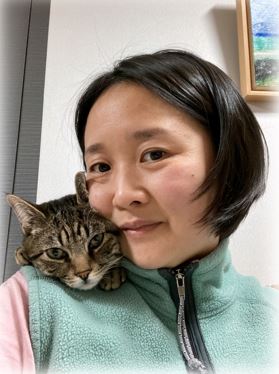Duffield Institute team
Veterinary Behaviorists
 Sun-A Kim, DVM, MS, DACVB, PhD
Sun-A Kim, DVM, MS, DACVB, PhD
Dave and Cheryl Duffield Assistant Professor
Duffield Institute for Animal Behavior
Dr. Sun Kim recently joined the Duffield Institute for Animal Behavior, and had previously been teaching as a clinical professor at Chungbuk National University in her native South Korea. Kim’s diverse background includes a D.V.M. degree from Chungnam National University; a residency at the University of California, Davis; a Ph.D. in clinical veterinary medicine from Seoul National University; and board certification as a behaviorist.
 Kate Anderson, DVM '08, DACVB
Kate Anderson, DVM '08, DACVB
Assistant Clinical Professor,
Department of Clinical Sciences, Duffield Institute for Animal Behavior
Dr. Kate Anderson, a Cornell alumna, has worked with both large and small animals in private practice and industry, and is also a Fear Free Certified professional.
 Katherine A. Houpt, VMD, PhD, DACVB,
Katherine A. Houpt, VMD, PhD, DACVB,
James Law Professor Emeritus, Section of Behavior Medicine
Dr. Katherine Houpt received her veterinary degree and her PhD from the University of Pennsylvania and is board certified by the American College of Veterinary Behaviorists. D.r Houpt specializes in the treatment of behavior problems of animals, primarily dogs, cats, and horses. She directed the Animal Behavior Clinic and taught at the College of Veterinary Medicine, Cornell University, where she is James Law Professor of Behavior Medicine, emeritus.
Trainer
Matt Mason, KPA CTP
Matt Mason, a Karen Pryor Academy Certified Training Partner (CTP), brings over 10 years of experience to the Behavior Medicine Service and Duffield Institute for Animal Behavior. His expertise spans obedience training, behavior consulting, therapy and service animal training, and animal sheltering. Matt uses positive reinforcement techniques that give animals agency, choice, and control in their learning. His holistic approach combines extensive field experience with evidence-based practices, going beyond basic training to provide comprehensive enrichment recommendations that help pet owners create supportive environments for their animals.
Behavioral Genetics Faculty
 Adam Boyko, PhD
Adam Boyko, PhD
Associate Professor,
Department of Biomedical Sciences
Dr. Adam Boyko is an assistant professor in Biomedical Sciences at the Cornell University College of Veterinary Medicine. His research focuses on genomic investigation of dogs as a model of genetic disease and evolutionary genetics. One aspect of this work is understanding the evolution and genetics of village dogs, the semi-feral pariah dogs found in much of the world today.
 Jacquelyn M. Evans, PhD
Jacquelyn M. Evans, PhD
Assistant Professor,
Department of Biomedical Sciences
Dr. Jacquelyn Evans’ research program focuses on improving the health of dogs by identifying genetic risk factors for disease, leading to genetic tests to reduce disease frequency, earlier disease detection, and potentially improved therapies. Many canine diseases have human counterparts often caused by the same mutation or mutations in the same genes/pathways. Thus, the information we learn from the dog model may also inform human disease research. Link to view profile feature.
 Heather Huson '97, PhD
Heather Huson '97, PhD
Associate Professor,
Department of Animal Science
Dr. Heather Huson’s research focuses on using modern genomic technology and bioinformatics to determine genetic variants in association with and causing phenotypes of interest and to explore population dynamics. She has a particular interest in identifying the effects of natural and artificial selection on populations and applying genomic information to improve the heath, well-being, and management of animals. She has worked across a variety of species with a main focus on dairy cattle and working dog genetics. Her research commonly relies on extensive phenotyping to better understand genetic mechanisms influencing complex behavior, health, and physiological traits. Read more about Dr. Huson here.
 Rory Todhunter, BVSc, PhD'92
Rory Todhunter, BVSc, PhD'92
Professor of Surgery,
Director, The Cornell University Richard P. Riney Canine Health Center
Dr. Rory Todhunter received his BVSc from the University of Sydney and had a private veterinary practice in Newcastle, Australia for two years. He went to Michigan State University for a residency in Equine surgery, and subsequently completed a PhD at Cornell University in 1992. Dr. Todhunter has been at Cornell since 1993 and is currently Professor of Surgery in the Department of Clinical Sciences. His clinical work is in small animal orthopedics and neurosurgery, and his research focuses on the genetics of osteoarthritis and canine hip dysplasia. He is a Diplomate of the American College of Veterinary Surgeons and a member of the Australian College of Veterinary Scientists.



